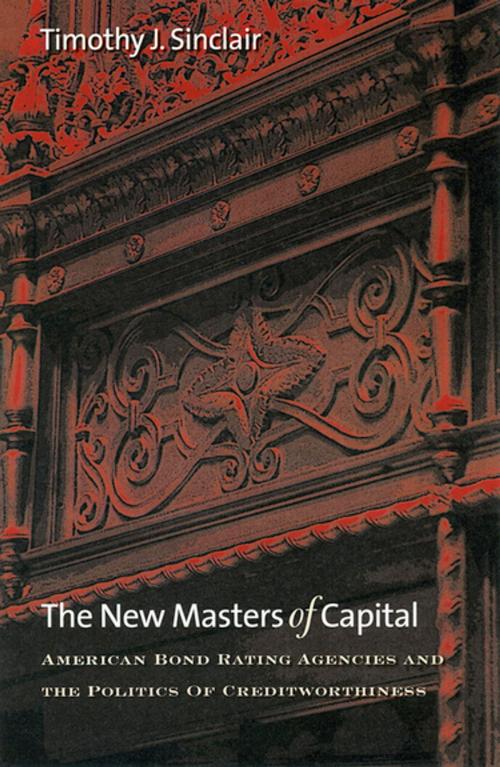The New Masters of Capital
American Bond Rating Agencies and the Politics of Creditworthiness
Nonfiction, Social & Cultural Studies, Political Science, Politics, Economic Conditions, Business & Finance, Finance & Investing, Investments & Securities| Author: | Timothy J. Sinclair | ISBN: | 9780801471834 |
| Publisher: | Cornell University Press | Publication: | July 31, 2014 |
| Imprint: | Cornell University Press | Language: | English |
| Author: | Timothy J. Sinclair |
| ISBN: | 9780801471834 |
| Publisher: | Cornell University Press |
| Publication: | July 31, 2014 |
| Imprint: | Cornell University Press |
| Language: | English |
In The New Masters of Capital, Timothy J. Sinclair examines a key aspect of the global economy—the rating agencies. In the global economy, trust is formalized in the daily operations of such firms as Moody's and Standard & Poor's, which continuously monitor the financial health of bond-issuers ranging from private corporations to local and national governments. Their judgments affect unimaginably large sums, approximately $30 trillion in outstanding debt issues, according to a recent Moody's estimate. The difference between an AA and a BB rating may cost millions of dollars in interest payments or determine if a corporation or government can even issue bonds
Without bond rating agencies, there would be no standard means to compare risks in the global economy, and international investment would be problematic. Most observers assume that the agencies are neutral and scientific, and that they interpret their role in narrowly economic terms. But these agencies, by their nature, wield extraordinary power and exert massive influence over public policy. Sinclair offers a highly accessible account of these institutions, their origins, and the rating processes they use to judge creditworthiness. Illustrated with a wide range of cases, this book offers a fresh assessment of the role of an often-overlooked institution in the dynamics of modern global capitalism.
In The New Masters of Capital, Timothy J. Sinclair examines a key aspect of the global economy—the rating agencies. In the global economy, trust is formalized in the daily operations of such firms as Moody's and Standard & Poor's, which continuously monitor the financial health of bond-issuers ranging from private corporations to local and national governments. Their judgments affect unimaginably large sums, approximately $30 trillion in outstanding debt issues, according to a recent Moody's estimate. The difference between an AA and a BB rating may cost millions of dollars in interest payments or determine if a corporation or government can even issue bonds
Without bond rating agencies, there would be no standard means to compare risks in the global economy, and international investment would be problematic. Most observers assume that the agencies are neutral and scientific, and that they interpret their role in narrowly economic terms. But these agencies, by their nature, wield extraordinary power and exert massive influence over public policy. Sinclair offers a highly accessible account of these institutions, their origins, and the rating processes they use to judge creditworthiness. Illustrated with a wide range of cases, this book offers a fresh assessment of the role of an often-overlooked institution in the dynamics of modern global capitalism.















